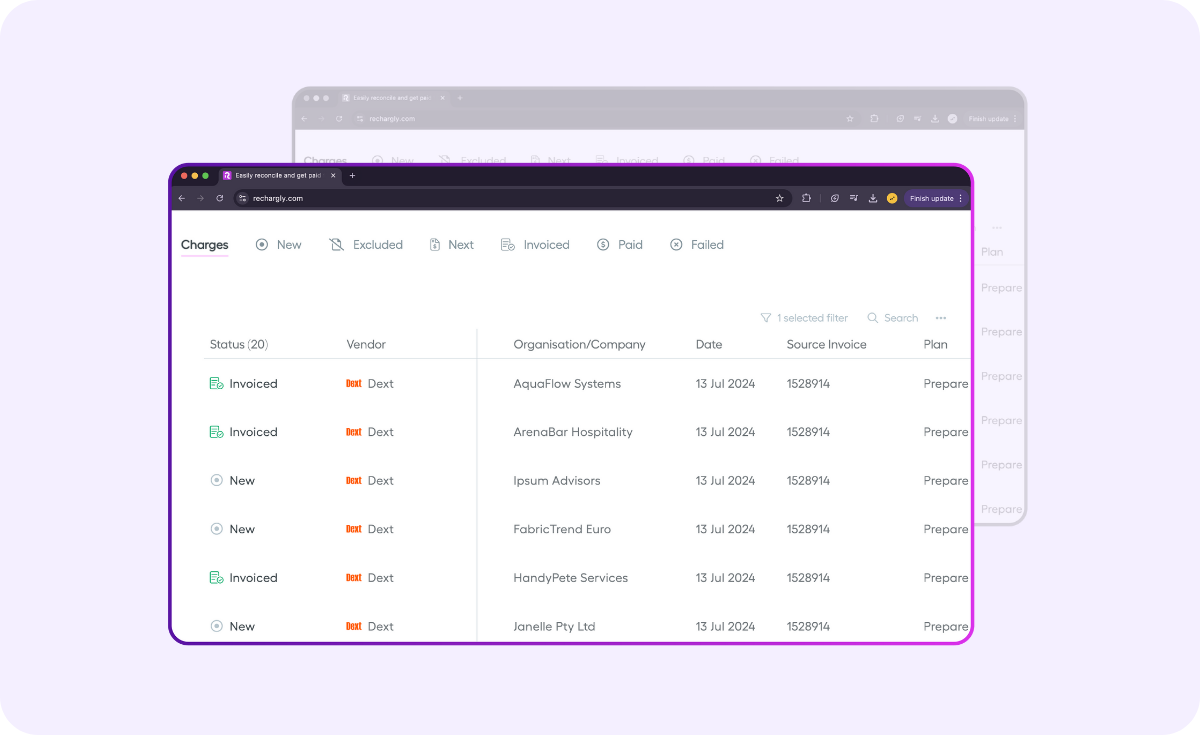Streamlining Dext Billing for Accounting Firms with Rechargly
700,000 businesses rely on Dext to streamline their financial document processing. But as client needs grow, managing and recharging Dext costs can become a major challenge. Many firms absorb the cost, bundling it into their service offering—but as document volume increases, so do overage fees, eating into profitability and creating billing complexity
Managing Dext costs and overages can be complex
When an accounting or bookkeeping offers Dext to their clients, they face an important decision. Should they pass the cost on to clients or absorb it? If a firm can accurately predict usage, makes sense.
.png)
However, businesses are unpredictable, and it never turns out to be that easy. The typical challenges a firm will face with disbursement includes:
- Absorbing costs reduces profitability: Many firms bundle software into their accounting or bookkeeping service. As the client scales, unexpected costs can reduce margins.
- Variable pricing adds billing complexity: With document-based pricing, firms must constantly monitor changes and update their invoices.
- Manual tracking is time-consuming: Reviewing document changes, updating billing records, and ensuring correct recharges create an admin-heavy process that doesn’t scale

.svg)


.png)

.png)
.png)
